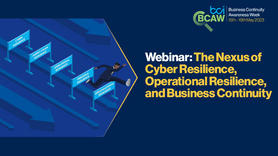Lessons from Barclays’ IT incident

On Friday, January 31, Barclays customers woke to inaccurate balance statements and issues with handling their money. The incident, which went on for days, left bill and mortgage payments outstanding, and one family temporarily homeless: “We drove down to (West Sussex on Friday) and we had all our things in a moving van and were waiting outside and unfortunately, around one o’clock, my solicitor calls and says Barclays is having some issues and we are unable to complete the sale.” [1]
The IT incident, which according to bank officials, was not down to a cyber-attack, happened at the worst time—month’s end, when salary payments and tax returns are due, highlighting the importance of testing systems regularly, particularly during high-risk periods.
There was no comment on the implications from other banks, but HMRC responded sympathetically to late tax returns as a direct result of the incident, confirming that no fines would be issued. [2]
Communication during a crisis
Following the incident, Barclays sent out an email, mobile app notifications, social media posts, and website updates. However, many felt that there was a lack of timely and transparent communication, with one customer describing it as "really poor". [3]
While the bank has apologized and stated that nobody will be left out of pocket, reputational damage and the impact on customer trust is likely to take more than a few days to improve.
Managing crisis communications is a delicate task that can save or sink an organization, depending on how it is handled. Highlighting the importance of this topic, research indicates that nearly 90% of practitioners consider external communications and PR indispensable during a crisis. [5]
Industry regulations and compliance
The Barclays incident underscores the importance of operational resilience regulations within organizations, which are designed to help institutions operate during adverse events.
As a key third-party service provider, Barclays plays a crucial role in payment processing for many organizations. The disruption not only affected individuals but also supply chains, amplifying the consequences across multiple sectors.
Regulators of the UK’s financial services sector have since launched an investigation into Barclays’ response and the broader implications of the incident. [4]
Maintaining business as usual
Organizations should implement robust contingency plans, adopt meticulous risk management processes, and establish efficient recovery measures. This approach not only provides a smooth transition back to normal operations following an incident but also protects against reputational damage.
Organizations need agile teams with diversified skills that can respond quickly at an operational level to preserve their reputation. The BCI Crisis Management Report contains real-world examples of situations experienced by organizations and effective PR responses for you to learn from to better prepare for unexpected incidents. [5]
[1] Barclays IT glitch leaves family ‘homeless’ as bank outage derails house purchase
[2] HMRC issues £100 penalty update to anyone hit by Barclays outage
[3] Barclays working to update account balances after tech outage
[4] UK’s Banking Watchdog Probes Barclays Over IT Outage - Bloomberg
[5] BCI Crisis Management Report 2024 | BCI









































